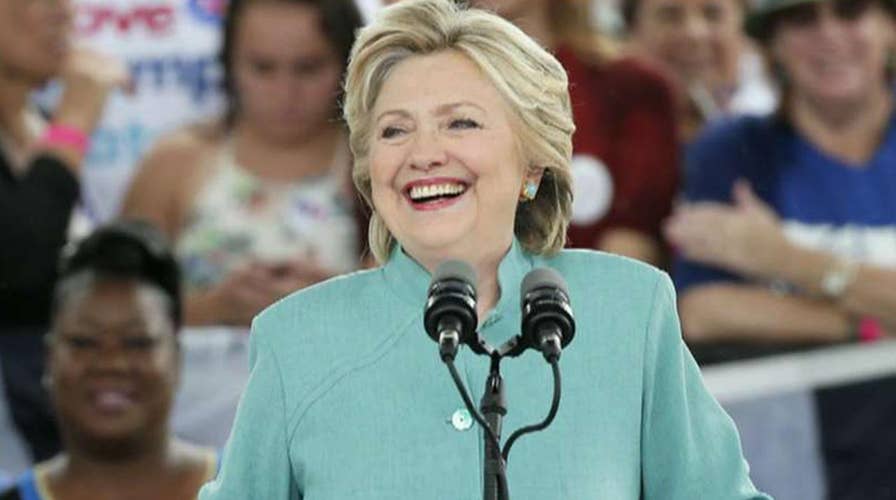Hillary Clinton blasts Trump; claims democracy in crisis
Reaction from Katie Frates, managing editor of Olympic Media.
Last week on Twitter, Hillary Clinton issued a call to arms to her loyal supporters, telling them that progressives must “fight back” against the Republicans and stop the GOP’s assault on America’s democracy.
“The president is waging war on the truth. The administration is undermining the national unity that makes democracy possible. And then there's the breathtaking corruption.”
Clinton listed a slew of policies that Democrats should embrace to stop President Trump as well as shore up the electoral system. A few ideas were refreshingly non-partisan, like mandatory paper ballots to backup electronic voting machines.
But also in the mix was the return of a favorite punching bag for Clinton supporters: abolishing the Electoral College.
It’s a demand she first made back in 2000, insisting that America adopt a national popular vote to directly select our president rather than letting a group of state electors do it for us.
Had the country adopted her proposal, recent political history would read very differently. For starters, we’d be debating the legacy of President Al Gore instead of President George Bush.
And, yes, we would also be debating the current successes and failures of a President Hillary Clinton rather than President Donald Trump. As her supporters are fond of saying, Mrs. Clinton won the popular vote but lost the all-important Electoral College.
Just like Al Gore.
Yet Clinton’s continued demand for change ignores a rather inconvenient bit of truth: 14 Democratic nominees before her were able to win the Electoral College and go on to the White House.
Roosevelt did it four times, in fact. Barack Obama twice.
While claiming that “our democracy is in crisis” and “our institutions and traditions under siege,” her remedy is an unambiguous assault on the constitution and a siege against the traditions that have served 14 Democrats quite well.
In other words, America doesn’t have a broken electoral system in need of fixing. Rather, Hillary Clinton was simply a broken candidate.
But instead of acknowledging any degree of ownership over her loss, Clinton and her supporters continue to point fingers at everything and everyone else. Activists like Michael Moore, for example, have raged in particular that the Electoral College is “racist.”
He promised to “lead the charge” to disband it.
Meanwhile, media partners like The New York Times have thrown their weight behind legislation – dubbed the “Interstate Compact” – that would effectively gut the Electoral College through legislative trickery. In short, state electors would be forced to vote for whomever wins the national popular vote, regardless of how a candidate performs in a particular state.
In other words, the electors from Michigan, Ohio, and Pennsylvania would have been compelled to vote for Clinton in 2016 even though their states went for Trump.
Clinton would now be in the White House.
Most reasonable people see this proposal for what it is: an act of political desperation. In fact, constitutional scholars have made the case that the Interstate Compact is a violation of the Voting Rights Act of 1965 if not the constitution itself.
And that is the greatest irony of Clinton’s latest Tweetstorm.
While claiming that “our democracy is in crisis” and “our institutions and traditions under siege,” her remedy is an unambiguous assault on the constitution and a siege against the traditions that have served 14 Democrats quite well.
Just not her.
None of this is to say that Clinton doesn’t have a point on the importance of electoral reforms. Indeed, most Americans would likely support things like a return to paper ballots to avoid a hacked election.
But by attacking the constitution in such a transparent way, she and her supporters have reminded the nation not only of the importance of the Electoral College but why so many of us have rejected her candidacy for president. Twice.
It’s a lesson that disgruntled Democrats would be wise to remember.









































